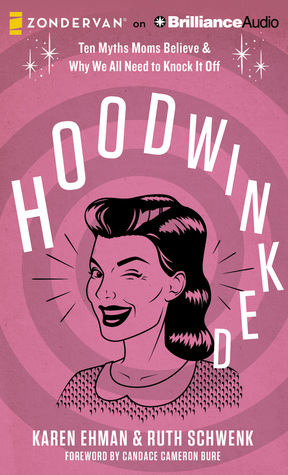(Many years ago, I wrote a simple article about my grandmother who suffered from Alzheimer's disease. I had written a poem in Spanish, my native language, but somehow I got it into my head that I wanted to be published in Guideposts, so I wrote the following article in English for that. I never sent it I have no idea why... maybe laziness... I don't know. Probably I didn't think it was good enough. But I thought today was a good day for it to finally see the light, mostly because I want to make sure that if you have a loved one suffering from this disease you realize that they still have much to offer, that you still have a chance to connect with them, to get to know them in a very different way, to enjoy their quirks, their wit, even their crankiness. Under your relative's thin veil of confusion there lies the person he/she was, without inhibitions.)
 As my best friend dialed her grandmother’s telephone number, I stood
still, amazed that she knew the number by heart. Suddenly, I felt a rush of
guilt overflowing me, "How come I don’t know grandma’s phone number?"
As my best friend dialed her grandmother’s telephone number, I stood
still, amazed that she knew the number by heart. Suddenly, I felt a rush of
guilt overflowing me, "How come I don’t know grandma’s phone number?"
I thought we were a very close family. We visited our grandmother every
week and she would give my sisters and me a glass of Pepsi and a plate of
Social Tea cookies. We talked, we watched television, shared a few memories
together and then, off we went to our house until another week had passed and
we would do it all over again. I never felt the need to call my grandmother,
Tata, on the phone. Whatever it was we had to say, I figured, it could wait
until our next visit. So my guilt found a justification and I was relieved.
However, although we may plan visits and trips and rationalizations, we
can never fully plan for our unknown future, God does it for us. And His plan
for our next step in life took me by surprise: Tata had Alzheimer’s and she
could not live alone any longer. She misplaced her keys, she believed that she
was being robbed, she argued that she wasn't receiving her retirement checks,
she wasn't eating right, dressing right or behaving normally. She was sick.
So my family’s next move was for her to move in with us. "Well", I thought, "at least I will know her phone number now." But it felt strange. Pretty
soon I realized that a few cookies and sodas, a few visits and talks did not
provide for an understanding of who this woman sleeping in the bed next to mine
really was. I did not know her.
What bothered me the most was that it was too late to start getting to
know her. She had lost sight of who I was, who my mother was, where she was,
what year it was, if she had eaten, if she took a shower, if the dress she had
on was hers (and most of the time it was mine). Sometimes she didn't even
recognize herself and had conversations with her mirror image! To me, it was
funny and endearing, but, at the same time, I sadly realized that it was
impossible to get to know someone that didn't even know herself anymore. The
more her mind escaped her, the more irrational and erratic she acted.
On the days we went to church, however, she was on her best behavior. A
woman raised with strict rules, she knew how to behave in public and she never
forgot that. She was extremely ladylike and very well mannered, unlike me, and,
she would say, unlike my sisters, too. To her, we had no social skills
whatsoever. She knew how to sit properly, how to address someone in public, how
to talk to strangers. She valued appearances, so she would put on makeup up to
her ears, she would brush her hair, and always, always, pose. She would pose
when talking to someone, she would pose for the camera, she would pose when
laughing, she would pose when having a headache or when inventing a headache,
she would pose when she wanted to dance or even when she thought no one was
looking. She had class. I never knew that before.
At home, she would sit in the rocking chair, staring at herself 70 years
before. She was a teenager in her eyes. She would ask to see her mother, her
deceased sister Maria, her brother Milan, and her father. She wanted to be sure
the cows were taken care of and the errands had been run. Then, suddenly, it
was 30 years later and she was asking to see her daughters, her husband, and
Juanchon, her driver. She wanted to cook dinner, tend to the pets, and make
sure the clothes were washed. A very hands-on and caring person, she always
wanted to be certain her family was well and taken care of.
When she came back to our reality, she would call me by name but did not
recall she was my grandmother; she thought she was my aunt, that my mother was
her sister, and that she was in charge of all of us. She was the matron of the
house, capable of making decisions, the woman in charge who would kick visitors
out if she thought it was too late or that it was the wrong time to visit.
Every single time we had to explain her situation and ask our friends to please
forgive her. But she was offended if her authority was questioned. In her eyes,
she was responsible enough, old enough, intelligent enough, healthy enough to
be respected and to be seen as the leader, as the chief. She was tough, and
strong, and stern.
Tata was never more real to me than in those last years of her life. In the
beginning, I was frustrated and afraid that I wouldn't know how to deal with
her because I didn't know her. In the end, I realized that God really does work
in unexpected ways. When I thought it was too late to get to know the woman
lying in the bed next to mine, God opened a beautiful window through her eyes
and I got to meet my grandmother as a child, as a teenager, as a newlywed, as a
mother, as a grandmother, and as a friend. God knew it was not too late to get
to know the funny, classy, caring and strong woman Tata was, and so He made
sure I would meet her when I was old enough to know how important and valuable
she really was.





